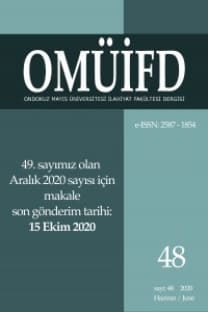Fârâbî’nin İki Yapıtı
Farabi’nin “Felsefenin Temel Önermeleri” ve “Mantık ve Eski Felsefenin Temel İlkeleri konusunda Sorunların Kaynakları” başlıklarıyla çevirdiğimiz, birincisi kendisine ait olduğu tartışmalı iki yapıtı İslam Düşünce Tarihi içinde önemsenmesi gereken ve Ortaçağ düşünce dünyasını anlama olanağı sağlamada özelliği olan iki yapıttır. Bu iki yapıt neredeyse onun düşünce dünyasını özet olarak bize sunmakta ve onun siyaset felsefesinin temellerini de göstermektedir. İşte salt bu nedenledir ki, çevirilen yapıtlarla ilgili kısa bir tartışmanın ardından iki yapıtın girişine onun siyaset felsefesinin özetini de içeren bir bölüm eklenmiştir. Yukarıda andığımız ona ait olduğu kuşkulu olan, fakat aynı düşünce geleneği içinde yazılmış bulunan birinci yapıtı felsefeyi tasavvufla renklendirmektedir. Bu açıdan onun öteki yapıtlarından önemli ölçüde farklıdır. Ancak bu yapıtın bu açıdan farklı oluşu Farabi’nin öteki yapıtlarındaki görüşlerin bu yapıttaki görüşlere yabancı olduğu anlamına alınmamalıdır. Özellikle onun her yeni ve özgün bilgiyi Tanrı’nın özel kişilere iletmesine bağlaması; sisteminin bütünüyle Tanrı merkezli bir temele oturtulmuş olması bunu doğrulamaktadır. Bu iki yapıt notlarla ve açıklamalarla desteklendiği gibi, Farabi’nin şahsında Ortaçağ düşünce geleneğinin çıkmazları da yer yer gösterilmeğe çalışılmıştır.
-
Two short works of Farabi, translated into Turkish under the title of “The Basic Principles of Philosophy” and “The Sources of the Problems in respect of Logic and the basic principles of the Ancient Philosophy” of which Farabi’s authorship of the former is controversial, deserve to be held of high importance in the History of Islamic Thought and have a special place in understanding the conceptual world of the Middle Ages. They almost offer us briefly his conceptual world and show us the fundamentals of his political philosophy. It is just for this reason that we added before the translations in sequel of a brief explanation about the works translated a part which includes a summary of his political philosophy. His abovementioned former work, which we disputed its authenticity but may be placed in the same conceptual tradition of Farabi, is coloured with Islamic Mysticism. In this respect it greatly differs from his other works. The fact that it greatly differs from his other works should not be taken to mean that the contents of his other works are foreign to it. This can be verified by the very fact that he attributes every new and original knowledge to the indirect communication of God with a chosen person and that he forms his whole thought with reference to God. We not only supported translations with notes and paraphrases, but also tried to show in places the problematic nature of the conceptual tradition of the Middle Ages.
